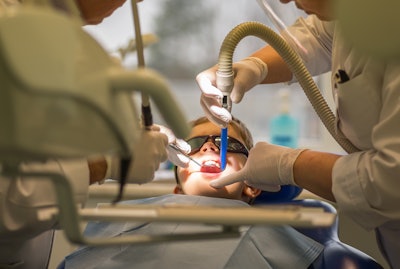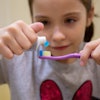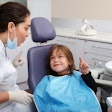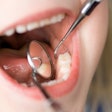
Researchers from the University of Illinois Chicago (UIC) and DePaul University will investigate whether surgeries for children with severe cavities serve as a key opportunity to improve long-term oral health, according to a DePaul press release.
The trial will test a new intervention called Protect, which uses community health workers to help families adopt healthier oral care habits for their child after surgery, according to the press release dated September 30.
"If we can change a child's health behaviors at that critical time of surgery, our hope is that we can promote health over a lifetime," Dr. Helen Lee, MPH, a pediatric anesthesiologist at UIC, said in the release.
In 2014, UIC had a waiting list of over 1,000 children needing treatment for cavities under general anesthesia. Some families on Medicaid had to drive hours across the state to access care at UIC. Even after overcoming significant barriers, many children develop new cavities within six to 12 months after dental surgery, according to the release.
Researchers designed the Protect program to increase adult-assisted toothbrushing and reduce a child's sugar intake. The program entails community health workers first meeting caregivers during the child's surgery and then continuing the program through regular sessions over the following six months.
A pilot study with a small group of families showed promising results, including 100% of participants reported brushing twice daily and significantly cutting sugar intake. With new funding, the researchers will now conduct a large, randomized control trial to test the program's effectiveness over the next five years.
In the pilot study, families discussed social determinants of health, including food insecurity, poverty, and stress, which influenced their ability to follow recommended oral care practices. These insights led researchers to incorporate parenting and stress management strategies into the Protect program, according to the release.
Community health workers will engage with caregivers for six months after the child's surgery, helping families implement the program and support lasting behavioral changes. These surgical events offer a unique chance to create change, especially for systemically marginalized families who may not regularly visit the dentist.
The team developed the program with support from the U.S. National Institute of Dental and Craniofacial Research and a new $3.9 million grant from the U.S. National Institutes of Health. The research team also includes experts from UIC's colleges of dentistry, medicine, and applied health sciences, as well as the Institute for Health Research and Policy, according to the release.
"By starting with young kids, we're hoping PROTECT will also have long-term health benefits down the road," Joanna Buscemi, PhD, a clinical psychologist at DePaul, said in the release.




















